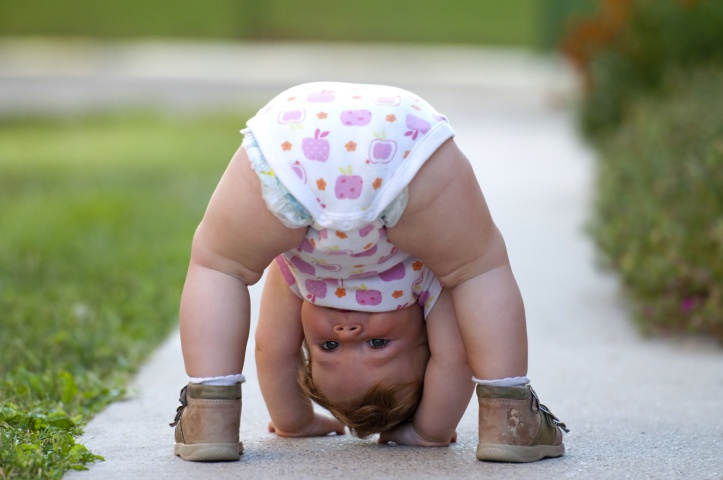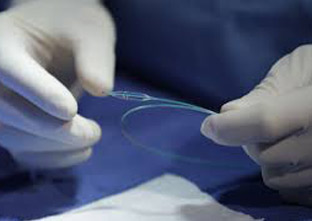
Plastics in infant care
He opens his eyes and cries out for the first time...the baby is here! What will be his first vision of the world? His parents and the medical staff first, of course. Okay, his vision will be far from perfect only a few minutes after birth; but if it weren't, he would be surprised to discover a world totally devoid of natural materials and in which a wide array of polymers with different characteristics meet many specific needs.
Keeping baby warm
Comfort first! Birth is traumatic; the baby transitions from a warm (37°C) and aquatic environment to a dry and much cooler environment in the space of a couple of minutes. Losing ten degrees in a short space of time means that the baby will experience significant thermal shock. Maternity rooms in developed countries have long been equipped with medical devices aimed at mitigating this shock. First, and often to many young mothers' great disappointment, the baby is placed in an incubator; it is a transparent box providing warmth, moisture and oxygen. Here, polycarbonates reign supreme; they are much lighter than glass and just as transparent, enabling young parents to admire their newborn offspring at their leisure. The baby is then snugly placed on a heating pad lined with PVC. Incubators are very mobile due to the low weight, of the plastics used, and their wheels, and can easily carry the newborn child to neonatal resuscitation if necessary.

Another advantage, and not the last, of these materials , is that they can be easily washed and disinfected. At a time, where a hospital's quality is also measured in the fight against nosocomial infections, this detail is very important.
Department of Neonatology: a summary!

It's white, it's transparent and dozens of LEDs flash on and off all around the room. Stepping into a neonatal resuscitation room is a bit like stepping into the cockpit of an Airbus. Here, the number one goal is to keep the baby alive and to keep it in a stable condition. The first thing to be done is to create a barrier against germs. The plastics covering the floor and ceiling have anti-bacterial properties - they undergo a silver ion-based treatment which is particularly effective for neutralizing bacteria. Neonatal intensive care units, although somewhat similar to incubators, are high-tech machines able to provide up-to-the-minute data on the newborn's health. They are directly linked to the hospital's oxygen system through perfectly airtight PVC tubes and pipes that guarantee the highest level of security.
The revolution of the catheter
 Un cathéter est un tube souple et fin en polyuréthane ou en silicone que l’on introduit dans une veine afin d’y injecter un médicament ou une solution nourrissante. Jusqu’à là, rien d’exceptionnel tant cela ressemble à une bête perfusion. Mais les choses se compliquent grandement quant il est question de nourrissons dont les veines sont à peine plus épaisses qu’un cheveu. Fin des années 1980 apparait sur le marché un nouveau type de cathéter dit Jonathan du nom du premier enfant soigné par ce procédé : les cathéters épicutané-caves. D’un diamètre de l’ordre de 0,6mm, ils sont d’une extrême finesse et utilisés généralement chez les prématurés et les nouveaux-nés de moins de trois kilogrammes. Une fois posé, le cathéter reste à demeure, c’est la fin des piqûres à répétition sources de stress pour les équipes soignantes et tellement inconfortables pour les bébés.
Un cathéter est un tube souple et fin en polyuréthane ou en silicone que l’on introduit dans une veine afin d’y injecter un médicament ou une solution nourrissante. Jusqu’à là, rien d’exceptionnel tant cela ressemble à une bête perfusion. Mais les choses se compliquent grandement quant il est question de nourrissons dont les veines sont à peine plus épaisses qu’un cheveu. Fin des années 1980 apparait sur le marché un nouveau type de cathéter dit Jonathan du nom du premier enfant soigné par ce procédé : les cathéters épicutané-caves. D’un diamètre de l’ordre de 0,6mm, ils sont d’une extrême finesse et utilisés généralement chez les prématurés et les nouveaux-nés de moins de trois kilogrammes. Une fois posé, le cathéter reste à demeure, c’est la fin des piqûres à répétition sources de stress pour les équipes soignantes et tellement inconfortables pour les bébés.
Bien entendu, ces plastiques sont hypoallergéniques et biocompatibles. Bref, le grand public ne le mesure pas vraiment, mais l’arrivée de ce nouveau type de dispositif médical fut une véritable révolution pour les soignants comme pour les patients.
Bottles that are good for babies...and for public finances
It is not always clear how a disposable object can also be a source of savings. Yet, they can be! At the hospital, mothers who cannot, or do not want to, breastfeed can confidently sustain their children thanks to disposable bottles. This new type of bottle is of course unbreakable and classified as food grade equipment; the teats are manufactured from polypropylene and silicone. They are completely sterile and, much like medicine caps, they are pre-filled in a laboratory before being sealed. This guarantees the right dosage and the right product. Of course, they come in different sizes. For mothers, they are a guarantee of flawless quality - so stringent are the controls both upstream and downstream. They are also advantageous for public finances; following a comparison of the Life Cycle Assessments for both types of bottles, disposable bottles have been proven to be much more economical:

no large stocks, no cleaning or sterilization, etc. and additionally, they are made of recyclable polymers. Currently, they are pre-sterilized by gamma ray bombardment, as recommended by most health agencies.





